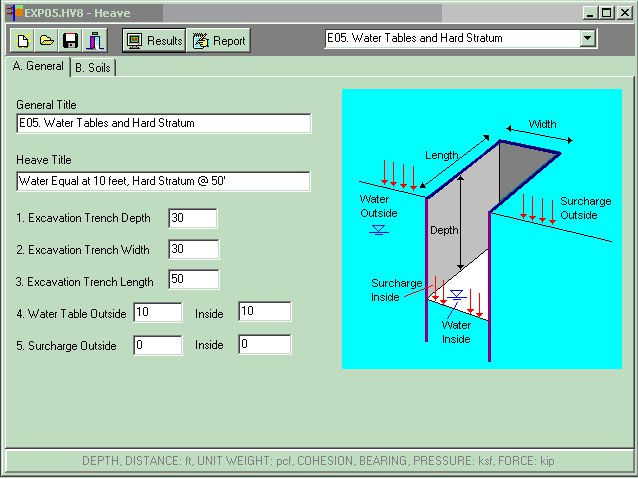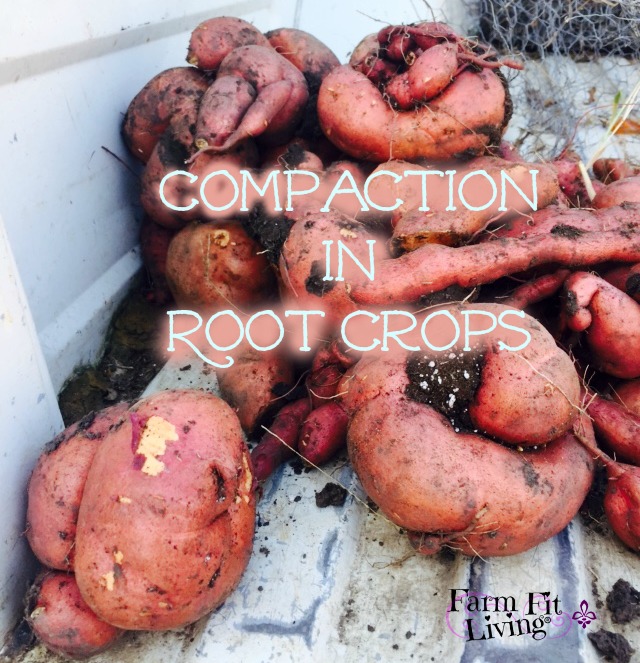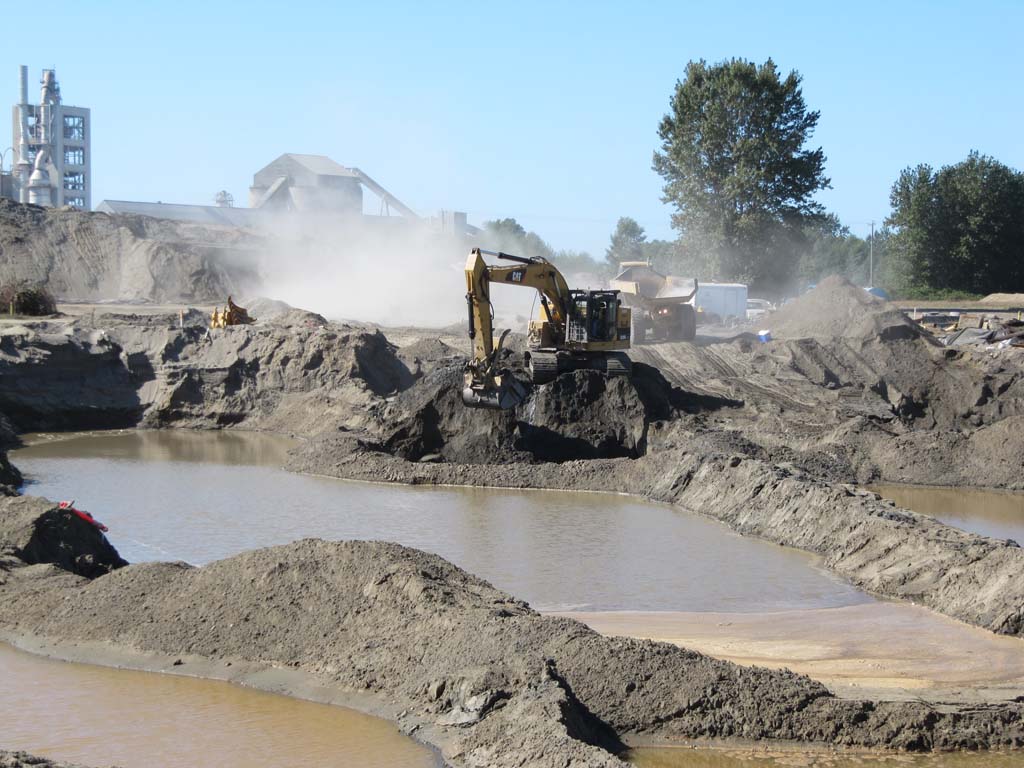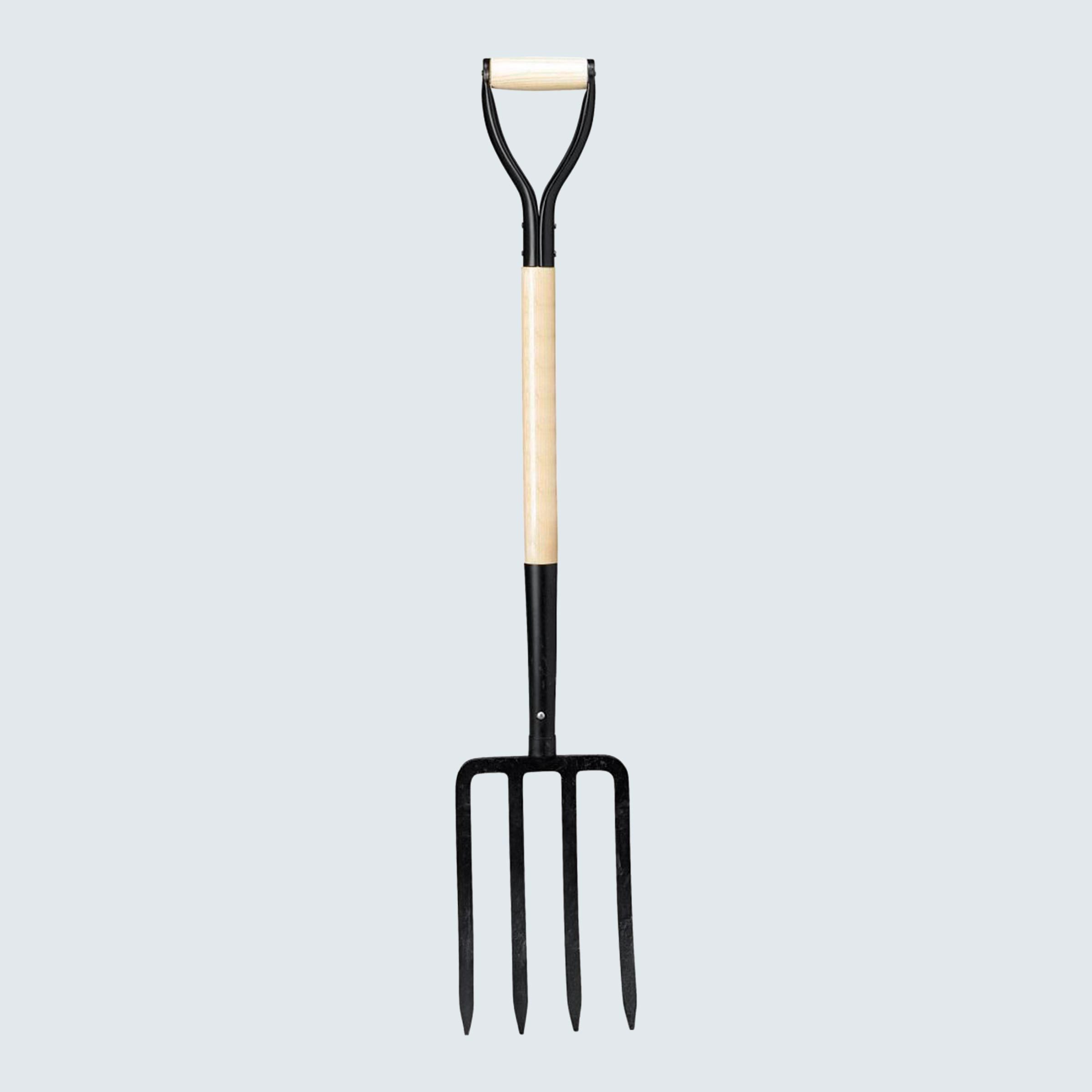Cover crops, also called green manure crops, help loosen clay or compacted soils with their roots and by adding organic matter. They also prevent nutrient loss and erosion during the non-growing season. Leguminous cover crops, such as winter rye, alfalfa, hairy vetch and clover, which add nitrogen to the soil, are usually planted at the end of summer or early fall. To fix compacted soil, which is soil that has little to no air space, break it up to make it hospitable for your plants again. Start by shifting livestock, machinery, vehicles, and foot traffic away from the compacted area to give the soil a rest.
If you use the compacted area for farming or gardening, move your plants somewhere else for at least 1 growing cycle. Instead, plant a cover crop, like winter wheat or ryegrass, to allow the roots to break up the soil. For smaller, grassy areas that are compacted, use a small metal garden fork to poke holes in the soil so air, water, and roots can enter the area.
However, when tackling a larger area, use a rototiller with an aeration attachment. Heavy or hard soils contain a high percentage of clay and low amounts of silt and sand, resulting in compacted soil that becomes difficult to till. Improving a clay soil lawn or garden by adding decomposed organic material, such as compost, not only improves workability but increases fertility. Gypsum is easily applied to the soil surface with a regular lawn spreader. It's an ideal amendment for improving soil structure and relieving compaction in existing lawns and gardens. When I first start a garden and double dig my rows (3' wide minimum) I will add DECOMPOSED organic matter and fertilizer and mix sorta kinda.
Without using anything else this makes raised beds. Sometimes there is a lot of moisture in the soil but it will look dry to you. My beds for plants are always ALWAYS raised with trenches at the bottom of the slopes to take excess water away to where ever I dictate.
No matter what kind of soil I have, I make these raised beds. They start out a couple of feet high with the fluffy soil and then they are formed and compacted to get rid of large air pockets. Common soil amendments include compost, grass clippings, straw, shredded leaves, rotted manure and dried seaweed.
For starters, fall mulching gives you the upper hand on spring weeds. Pull weeds that do emerge in the spring early and quickly, when they are small and easy to manage. Covering garden beds right from the start gives you the jump on garden weeds, while feeding the soil with organic material at the same time. Healthy soil typically is more than 40 percent pore space, with large pores that promote drainage and small pores which help store water. This combination enables air and water to penetrate, promotes good drainage, and allows soil organisms to breathe and plant roots to grow.
Machinery, foot traffic and pounding rain compact the soil and make life in the soil difficult. Compacted soils can flood and also be susceptible to drought, since water runs off rather than infiltrating. You can repair compacted soil by rebuilding its spongy structure. Some people claim you can loosen clay by adding gypsum to it. The theory is that gypsum binds clay particles together to make bigger particles, providing more space for air, water, and roots. While this works to some extent, adding gypsum alone isn't enough for most gardens.
The best way to loosen and improve clay soil is by adding lots of organic matter. When using this method, adding a layer of an inch or two of sand or gravel on top of the clay will allow plants that cannot normally grow in clay to thrive. This is because some or most of their root system is above the clay soil, but the tips of the roots can still pull nutrients and water out of the clay. In a garden bed, the best way to introduce organic material without digging , is to apply layers on top and let nature do the work for you. Simply pile your garden bed high with organic material – it can be wood chips, shredded paper, straw, chopped leaves, lawn clippings – whatever you can lay your hands on.
It might be slow, but the wait will give you time to get to know your land before you plant. Amending your soil properly can overcome heavy, compacted clay and get it back on track for healthy lawn and garden growth. Adding materials such as organic compost, pine bark, composted leaves and gypsum to heavy clay can improve its structure and help eliminate drainage and compaction problems.
Compaction is most likely to occur with heavier soils like clay and loam, but when heavy equipment is used, sandy soils can become compacted. These are soil particles that are packed closely together. The problem may be compounded by events that have happened to the soil over the course of years.
The pore spaces are reduced to the point that air and water cannot move freely and plant roots cannot grow easily into the surrounding soil. The soil could remain overly wet longer than is healthy for the plants growing there. Chop over-wintered cover crops directly into spring soils a few weeks before planting.
During the growing season, sow a quick-growing cover crop, such as buckwheat, to fill the gap between spring and fall crops. When it's time to plant, pull the buckwheat cover and use it as a mulch for fall garden beds. Your soil test or extension agent can help you determine the right amount of organic matter for your soil. Walking on your lawn or garden when its wet is a common cause. Heavy, beating rains also drive clay particles together.
Salts from fertilizers and winter de-icing solutions build up in heavy clay as well. Instead of gypsum, consider core aerifying in spring, summer or early fall to reduce the compaction and improve plant health. Aerifying with large half-inch hollow tines and punching about 25 holes/square foot will produce good results. Very compacted soil can benefit from several corings each year . This does not minimize the benefit of have a high Ca and Mg level reading in your soil test, but coring does physically reverse a physical compaction of soil particles.
Yes, coring is an expensive service to buy, and most lawns really don't need it; but it won't hurt. And if the soil is compacted, it's usually the best solution to the stifled growth. It takes the care of your clay soil yard to an entirely new level. Top-dressing planting beds with several inches of compost will improve lightly compacted soils. Earthworms and other soil fauna will gradually pull it down into the soil, loosening it and improving water-holding capacity. A 2- or 3-inch layer of shredded leaf mulch or wood chips will provide similar benefits.
Compacted soil and plants don't go well together. Without enough air space in soil, there's no room for water and nutrients to circulate, and the roots on your poor plants have nowhere to grow. The good news is that there are steps you can take to fix and prevent soil compaction.
Below we'll walk you through how you can break up compacted soil, reintroduce air into it, and make it a welcoming home for your plants again. You will need to work at it over the years by repeating the process though. Baked clay is almost impossible to break up, rotivate or dig, it's easier to spread the organic matter and grit and wait until the worms have done some of the work for you.
For a large vegetable garden, another solution is to grow a cover crop at the end of the season, then mow and turn in the following spring before planting. The roots penetrate the compacted soil and loosen it. By mowing and turning the mowed tops in, the soil is additionally loosened.
Cover crops could include annual ryegrass, winter wheat, winter rye, buckwheat, oilseed radishes and hairy vetch. While wet earth by itself isn't easy to dig, one can use how moisture affects the dirt to their advantage. Damp earth can clump up, become heavier, and stick to the blades of your shovel. However, clay soils hard on the surface can break up after digging 10 inches into the ground. This wetting process underneath the top layer of earth allows you to lift entire earth pillars with a post hole digger easily.
Adding sand can be tricky and typically is not recommended to be added to clay soil. Chop organic material directly into the top 2 inches of soil with a heavy bladed hoe and cover with mulch. Ideally, add concentrated manures, mineral phosphorous and potassium fertilizers, and lime at the same time. Adding these materials in the fall gives them time to break down for use when plants need them in the spring. The exception is if you do the tilling or digging only once to help prepare the soil.
This approach can work and can speed up the process. But make sure to follow up by adding organic material to the surface of the soil and start planting perennial plants—and then stop digging/tilling. Most heavy clay soils benefit from the addition of gypsum. It adds some nutrients but, more importantly, it loosens clay soils and makes it more workable. Spread about 3 to 4 pounds of gypsum per 100 square feet over garden soil after it has been dug in the winter.
Work it into the soil or allow it to be washed in by rain. Aeration should be part of every homeowner's lawn maintenance plan, but it is particularly important for residents of DFW. Aerating twice a year will keep the easily compacted clay soils of DFW loose and porous for optimal plant growth. Ideally, DFW lawns should be aerated once in the spring and a second time in the fall. A slightly faster option is to cover the soil with material that is full of soil microbes, as these will speed up the process. This includes compost, worm castings, and manure – and less of the dense, harder materials such as wood chips, which take longer to decompose.
Make sure to cover this 'active' compost etc with a layer of straw mulch to avoid it drying out as this will kill the useful microbes, which don't like hot sun. Deep watering once a week will also keep things moving. After about a month you'll notice a difference and, if you keep feeding your soil every spring and autumn, it will soon be full of life and all your plants will thrive. Once you have realized your soil is compacted, there are several things to be done.
Resist the urge to routinely roto-till or cultivate the garden. Instead, consider adding organic matter by using mulch or compost over the top of a flower bed or simply hand-spade it into the top 3 to 6 inches of soil. For a vegetable garden, put 2 inches of compost on the soil surface and till in and repeat for a total of 4 inches in a season. A goal of 5 to 15 percent of organic matter would be advantageous.
Soften your hard soil by adding decomposed organic material, such as compost, which not only improves workability but increases fertility. Including gypsum, or calcium sulfate, in the mix will bind the organic matter to the soil particles and prevent the soil from crusting over or cracking once dry. Reseed the affected area, if you're improving a clay soil lawn. If you're amending soil for a vegetable or flower garden, you can begin planting immediately once you've added the amendments. If you don't plan to plant immediately you should cover the area with a heavy layer of mulch to prevent erosion and slow water absorption. Otherwise your hard work might literally be washed away by a heavy rain or two.
This is particularly helpful for heavy clay soils that make it difficult for grass roots to thrive. By taking steps to improve and maintain your heavy clay soil, you can enjoy all the benefits clay offers and reap the rewards of healthy soil and plants. Penningtonis here to help you overcome lawn and garden challenges and grow the best lawn and garden possible, in heavy clay and every other soil type. Clay's potential as one of the best soil types for plant growth lies in its unique properties. Managed well, clay soil typically requires less irrigation and less fertilizer, and leads to healthier plants all around.
Just as it is difficult for you to dig in compacted soil, it is also difficult for soil-dwelling organisms, like bugs and worms, to tunnel in compacted soil. You won't usually find many organisms living in compacted soils because they cannot get the air, space and nutrients they need to survive. Also, compacted soil makes it difficult for plants with delicate root systems to thrive. Very compacted soil tends to support only the growth of weeds, which have thick tap roots that can penetrate deeply into compacted soil and out-compete other plants. Commercial products, such as ClayMend, are also available to amend clay soil by introducing beneficial soil microbes and supplying them with nutrients. The company states that a blend of organic acids gathers ultra-fine clay particles and then microbes work to secure them together.
How Do You Soften Hard Soil For Digging This process opens the soil, allowing it to breathe. The beneficial microbial activity increases and plant roots are able to establish themselves in the restructured soil. Nutrients that have been locked away become free to be attached to the organic material and the clay structures for easy access by the plant roots. About half of a healthy soil is made up of mineral particles like sand, silt and clay plus organic matter. That is the room for air and water movement around the mineral particles. Pore space is required in order to have a healthy environment for plant roots and beneficial microorganisms and earthworms to break down plant residue into organic matter.
You've made some excellent decisions for building healthy soil. Unfortunately, many of the cover crops you mentioned are either perennials that come back every year, or annuals that are cold-hardy and often survive the winter. This isn't a problem in gardens that are tilled, but in a no-till garden, your best bet is sheet mulching.
Otherwise, you could try using a broadfork or digging fork to break up the plant matter. If you pull the clovers, definitely use them as a green mulch. Because of Covid 19 I want to plant right away but I don't have access to garden stores.
If I had the resources, I'd do sheet mulching over this, but cardboard and newspaper are out and getting more soil or compost to put on top is also out. I have some leaves that were covering ground from winter that I can collect and put over. I'm guessing I need to cover them so that they will die and decompose, right? Or do you think those heavily rooted clovers should be pulled all the way out because it will be very hard to cut through to plant starts into? I don't have a lot of space in my garden as is, and food scarcity is a real issue right now so I can't afford to let it sit and work magic on its own for the year. Earthworms are part of the "micro-herds" of soil organisms that help to improve clay soil over time.























No comments:
Post a Comment
Note: Only a member of this blog may post a comment.